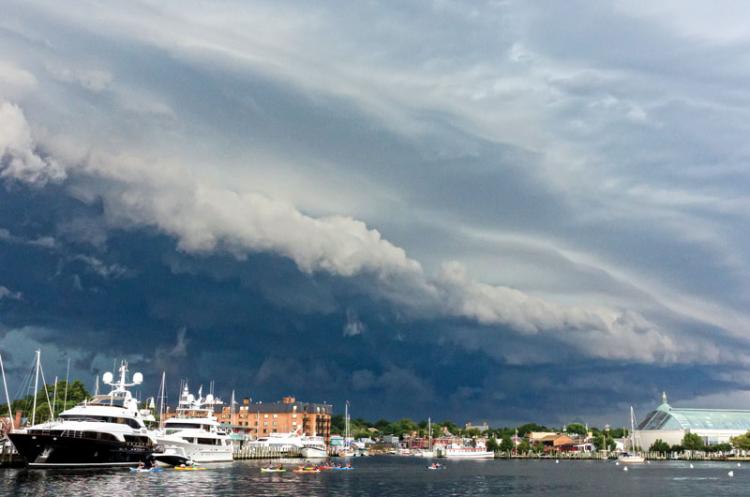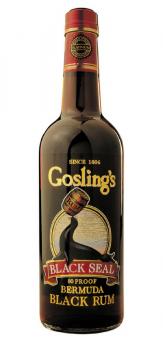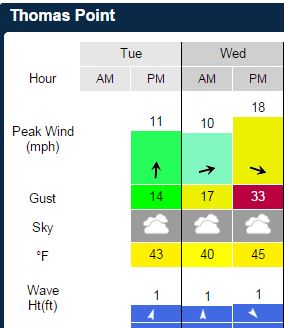Capt. Art Pine speaks to BoatU.S. President Chris Edmonston About Boater Safety
Whenever Chris Edmonston hears about a boating accident on the Bay, he winces. The tall, stocky mariner, who began boating as a youngster on the South River, is firmly convinced that almost all nautical mishaps are avoidable. And he has some definite ideas about how to achieve that—and a determination to get other boaters to go along.

Edmonston’s campaign hasn’t been confined to the Chesapeake. As president of the BoatU.S. Foundation, he’s been spreading the safe-boating gospel all around the United States, combining traditional pleas such as wearing your lifejacket with more general advice that skippers pay attention to what they’re doing and plan ahead.
“I don’t want people to think we’re safety zealots, but boating accidents are easy to avoid, if you’re conscious of it,” Edmonston said in an interview in his West Annapolis office suite. “What it really takes is planning and a little patience. And understanding your own skill-level.”
Edmonston has acquired both the boating knowledge and the industry experience to know whereof he speaks. Now in his 23rd year with BoatU.S., he worked before that as a marina worker, diver, and store manager. He moved to the Foundation, whose mission is promoting boating safety, in 1997. He’s also been an instructor, teaching boating safety classes in Maryland, and helping to fashion online boating courses. His job at the Foundation puts him in charge of BoatU.S.’s overall boating safety program and in a key position to expand its national program.
Q. You’ve been involved in boating safety for more than 20 years. What are the biggest things boaters need to keep in mind to avoid accidents on the water?
Planning and patience. Boating is such a great way to enjoy nature and escape the day-to-day grind that it’s easy to overlook many simple things that will keep you safe. I know that I can be so anxious to get out on the water that I don’t always take time to make sure the boat is in proper working order.
I see that in many boaters—when they get underway they just barrel ahead without thinking about where they’re going and what they’ll encounter. But you have to be patient and give yourself time to adjust to a situation. The more time you take, the better you’ll be able to figure out how the wind and the current are affecting you, or see what other boaters are doing, and you can adjust accordingly.
Q: Each year, BoatU.S. handles thousands of accident claims resulting from boating mishaps. What do these claims tell you about what boaters need to do to keep safe?
Several things. First, although a lot of boaters bring beer or wine aboard, you simply shouldn’t drink and operate a boat. I’m not a Puritan about liquor, but it’s clear from the accident statistics that drinking is a major contributor to boating mishaps. Because of the sun, wind, and the way boats move on the water, alcohol affects you differently on the water than when you are, say, in a restaurant or in your home. It impedes your judgment and impairs your ability to act quickly in case of an emergency. Boating is such an exciting activity—why cloud it with a few drinks? Just save them for when your trip is done.
The same goes for your crew. I’m not a big fan of using the “designated driver” approach on the water, as we do with cars. Not only do your passengers need to stay ready in case you need help, but you don’t need them falling down or getting bounced around and getting hurt. We see many injuries to intoxicated passengers from slips and falls in boats.
One of my great pleasures is boating at night. I love it. You get to enjoy the water in a completely different and exciting way. But it can be a challenge. So if you are out after sunset, drive a lot more slowly and more carefully than you do during daylight hours. You’ll probably have the water to yourself, so enjoy it. When I do go out at night, I find that my depth perception isn’t the same as it is during the day. It can be harder to figure out what exactly it is that’s making that light off in the distance. I definitely see alcohol and speed being a common them in nighttime accidents, so those are two things I avoid.

Finally, use your boat frequently if you can. Don’t just keep her moored as a floating patio. The more you actually get out on the water, underway, the better you’ll be able to notice if something isn’t working properly, and the more you’ll be able to improve your own skills as a mariner. Idle boats don’t do anyone much good.
Q: I can just hear some readers grousing, “That sounds as though he just doesn’t want anyone to have fun on the water.”
That’s not it at all. Boating is a fun activity. I love boating, and I want other people to love boating. The unpredictability of what we encounter on the water is part of the joy of it. The things that you need to do to help avoid boating accidents don’t have to crimp your style or interfere with your having fun. But if you own a boat, you have an obligation to take it seriously. And I find that more people are doing that. Accidents and fatalities have been trending downward for years, particularly for powerboats.
Q: In many cases, you can see peoples’ eyes glazing over when anyone talks about boating safety. What’s been your biggest frustration in trying to get boaters to take it more seriously?
Just like automobile safety, it takes a sustained effort. And for some people, you aren’t going to convince them fully until they have an “ah-ha!” moment—that is, they have an accident or a near miss themselves or one of their friends or family members does. PropTalk just ran an article about a couple of fishermen whose boat swamped on the Potomac, and how their “ah-ha!” experience prompted them to improve the safety gear they carry. They’ve even decided to try to help spread the word that safety measures matter.
Certainly, having an accident isn’t a way I’d like to learn what to do! Fortunately, there are easier ways to learn, and one of the great things about boating today is that there are truly so many ways to get good information. And I think that culturally we’re more willing to go to new sources for education. How easy is it to go to YouTube and find a video on just about anything? I know boatus.com has tons of articles and videos.
Q: What’s your take about having kids on the water? Some people feel that imposing too many rules will discourage people from bringing their kids out on the boat—or more likely that the kids themselves won’t like it. How do we make boating safe and fun?
I was running a boat long before I could drive a car, so I know you can do a lot to train your youngsters from an early age about how to function on a boat and what rules to follow. From there on, it’s a building process. Once they learn what the limits are, you can start teaching them how to perform various tasks. It’s great fun—and very rewarding—to show your kids how to tie knots, handle lines, even steer, under your supervision They even put down their cellphones for a little while! When they get old enough, send them through the state boating-safety course. Better yet, go with them—I promise you’ll learn something, too.
Q: Has your job as a boating safety advocate changed your own boating habits?
Absolutely. It’s hard to look at boating accident statistics and listen to boaters’ own stories without their having an impact on you. I’d say I’m much more aware of the need to take boating seriously than I was 25 years ago. Back then, you just got into a boat and went. You went fast, and might have a few adult beverages. Now a lot more thought goes into the whole process… I’m always training my family and my passengers, whether we’re in port or underway. Teaching them helps me reinforce my knowledge and boating skills, and for new boaters, teaching them what to expect makes their experience better.
Find more great safety advice here.
About the Author: Art Pine is a Coast Guard-licensed captain and a longtime sailor and powerboater on the Chesapeake Bay.





